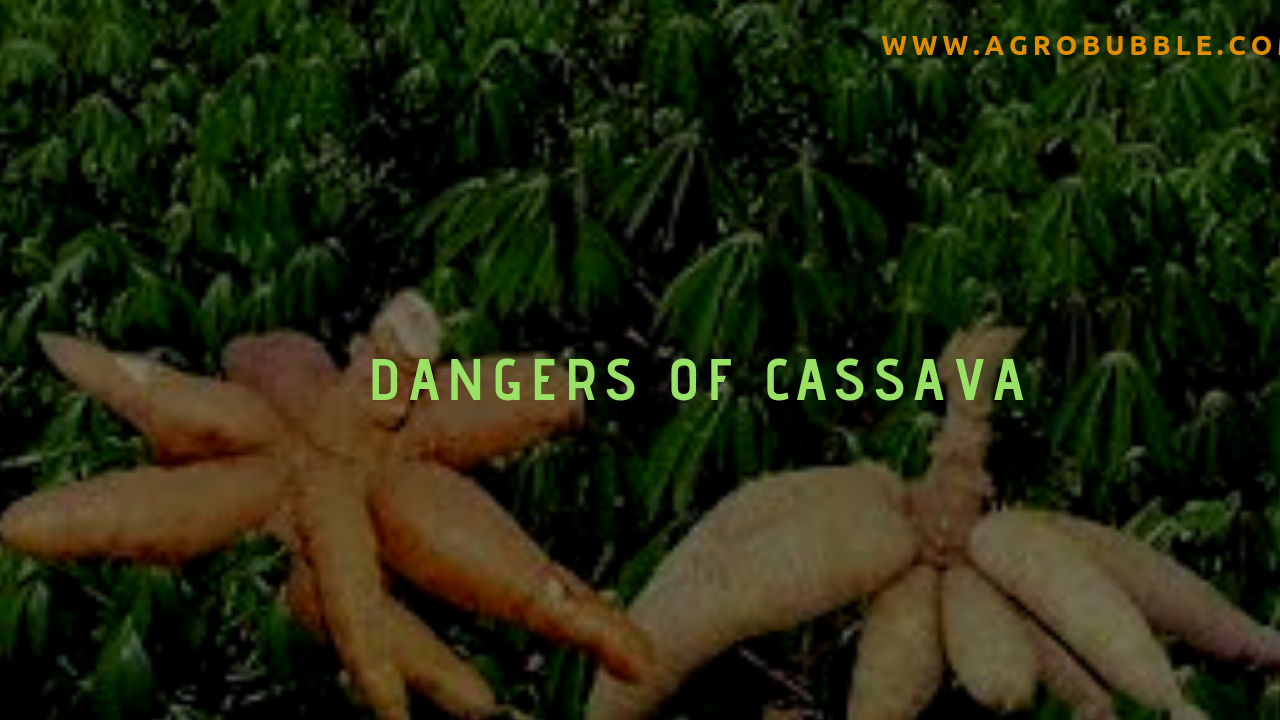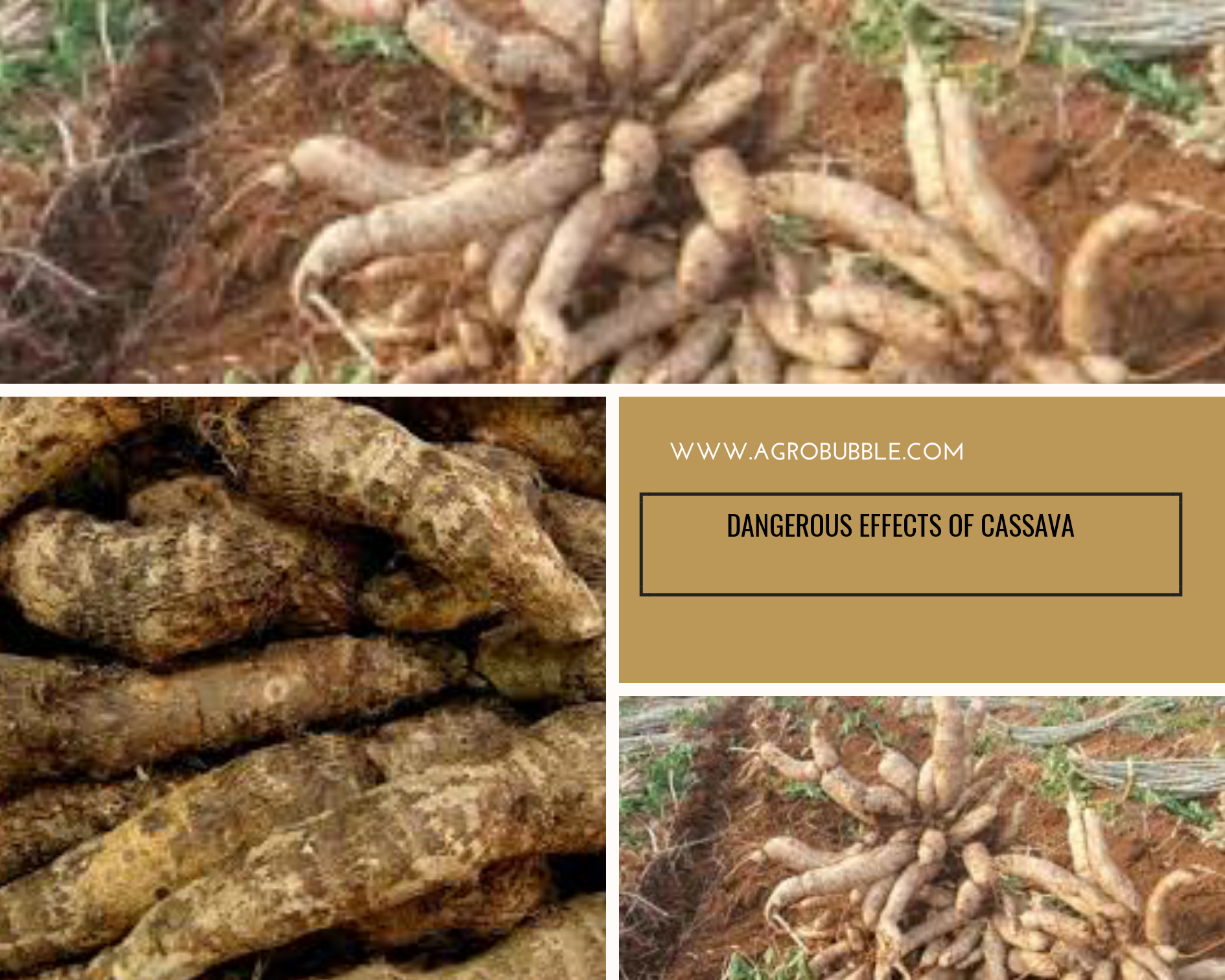Benefits and Importance of Cassava
Dangers of Cassava will be discussed in this article, to balance our Articles so far on Cassava, you can check out a few of our Posts where we talked about How To Own Cassava Production at ease and also the Benefits and Importance of Cassava where we detailed all the tips to apply to enjoy using cassava.
That being said, cassava is very important in everyone’s life, one way or the other, especially after it’s processed. But as we know, what has a good side, also has a bad side. That is why the dangers of cassava will be treated briefly today.
Cassava is a versatile root vegetable that is consumed in several parts of the world. It must be cooked before it is eaten.
One of cassava’s major downfalls is its content of anti-nutrients.
Anti-nutrients are plant compounds that may interfere with digestion and inhibit the absorption of vitamins and minerals in the body.These are not a concern for most healthy people, but their effects are important to keep in mind.
Here are the most important anti nutrients found in cassava

Saponins: Antioxidants that may have drawbacks, such as reduced absorption of some vitamins and minerals.
Phytate: This anti-nutrient may interfere with the absorption of magnesium, calcium, iron and zinc.
Tannins: It is known for reducing protein’s digestibility and interfering with the absorption of iron, zinc, copper and thiamine.
The effects of antinutrients are more prominent when they are consumed frequently and as part of a nutritionally inadequate diet.
As long as you only consume cassava on occasion, the antinutrients shouldn’t be a major cause for concern.
The antinutrients in cassava may interfere with the absorption of some vitamins and minerals and may cause digestive distress. Cassava are more likely to impact populations at risk of malnutrition.
This is mainly a concern for populations that rely on cassava as a staple food.
Cassava may be dangerous if consumed raw in large amounts or when it is prepared improperly. This is because raw cassava contains chemicals called cyanogenic glycosides which can release cyanide in the body when consumed raw. This cyanide is bad for the body.
When eaten frequently, these increase the risk of cyanide poisoning which may impair thyroid and nerve function. It is associated with paralysis and organ damage and can be fatal.
Read Also: Amazing Orange Health Benefits no one is talking about
Those who have an overall poor nutrition status and low protein intake are more likely to experience these effects, since protein helps rid the body of cyanide.
This is why cyanide poisoning from cassava is a greater concern for those who live in developing countries. Many people in these countries suffer from protein deficiencies and depend on cassava as a major source of calories.
In some areas of the world, cassava has been shown to absorb harmful chemicals from the soil, such as arsenic and cadmium. This may increase the risk of cancer in those who depend on cassava as a staple food.
Cassava in its whole form is high in resistant starch which is known for its role in preventing certain metabolic conditions and promoting gut health. Cassava contains some healthful properties but its negative effects appear to outweigh the benefits.
Not only is it high in calories and antinutrients — it can cause cyanide poisoning when prepared improperly or consumed in large amounts.
Cassavas can have dangerous effects, especially if it is eaten raw and in large amounts.
One important note is that cassava root must be cooked before it is eaten. Raw cassava can be poisonous.
However, its high calorie count may do more harm than good for the general population. Consuming high-calorie foods on a regular basis is associated with weight gain and obesity, so consume cassava in moderation and in reasonable portions and appropriate serving size.
Overall, cassava is not a food that needs to be a regular part of your diet. If you do eat it, prepare it properly and eat it in reasonable portions.
I hope you enjoyed reading through this article? For observations, suggestions and corrections use the COMMENT section below to state your views.

0 responses to “Dangers of Cassava: The Way Forward”